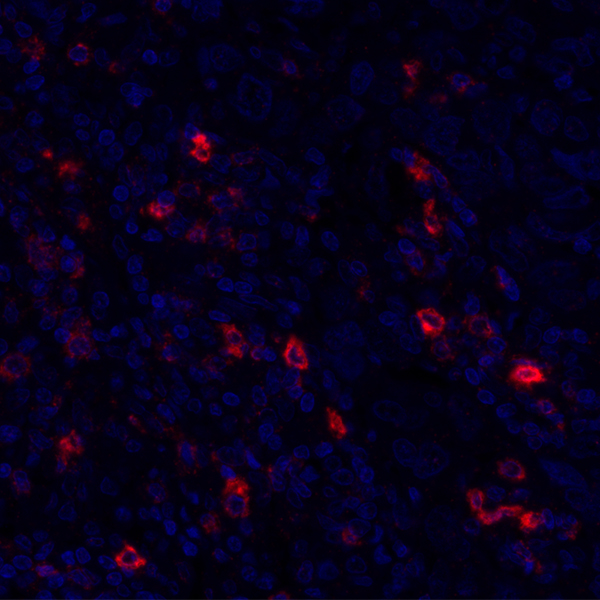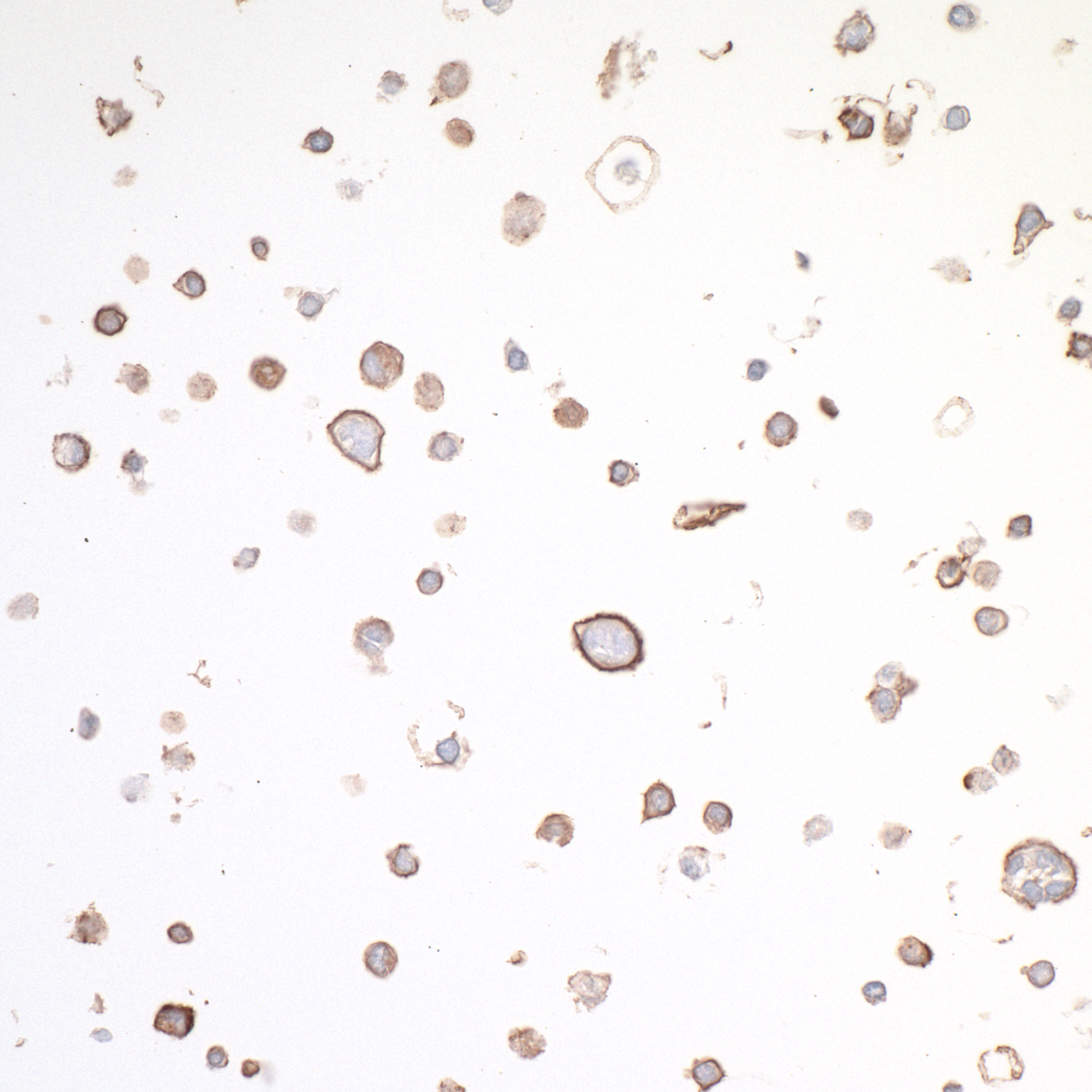OX40, also known as gp34, CD134, or TNFRSF4, is a member of the TNF superfamily. It is primarily expressed on activated effector and regulatory CD4 and CD8 T cells; it can also be expressed by NKT cells, NK cells, and neutrophils in the immune system.1 It is a costimulatory molecule whose ligand, OX40L (CD252), is expressed by antigen presenting cells including dendritic cells.2 and macrophages3 Signaling via OX40 recruits TRAF2 and TRAF5 to activate the NFkB pathway, which is negatively regulated by TRAF3.4 OX40 is upregulated on newly activated T cells following engagement of the T cell receptor. Engagement of OX40 also promotes the formation of memory T cells, and reactivated T cells upregulate OX40 more quickly than do T cells activated for the first time.5 OX40 also promotes cell survival through maintenance of Bcl-xL, Bcl-2, and Akt levels, whereas lack of OX40 leads to apoptosis.1,6




